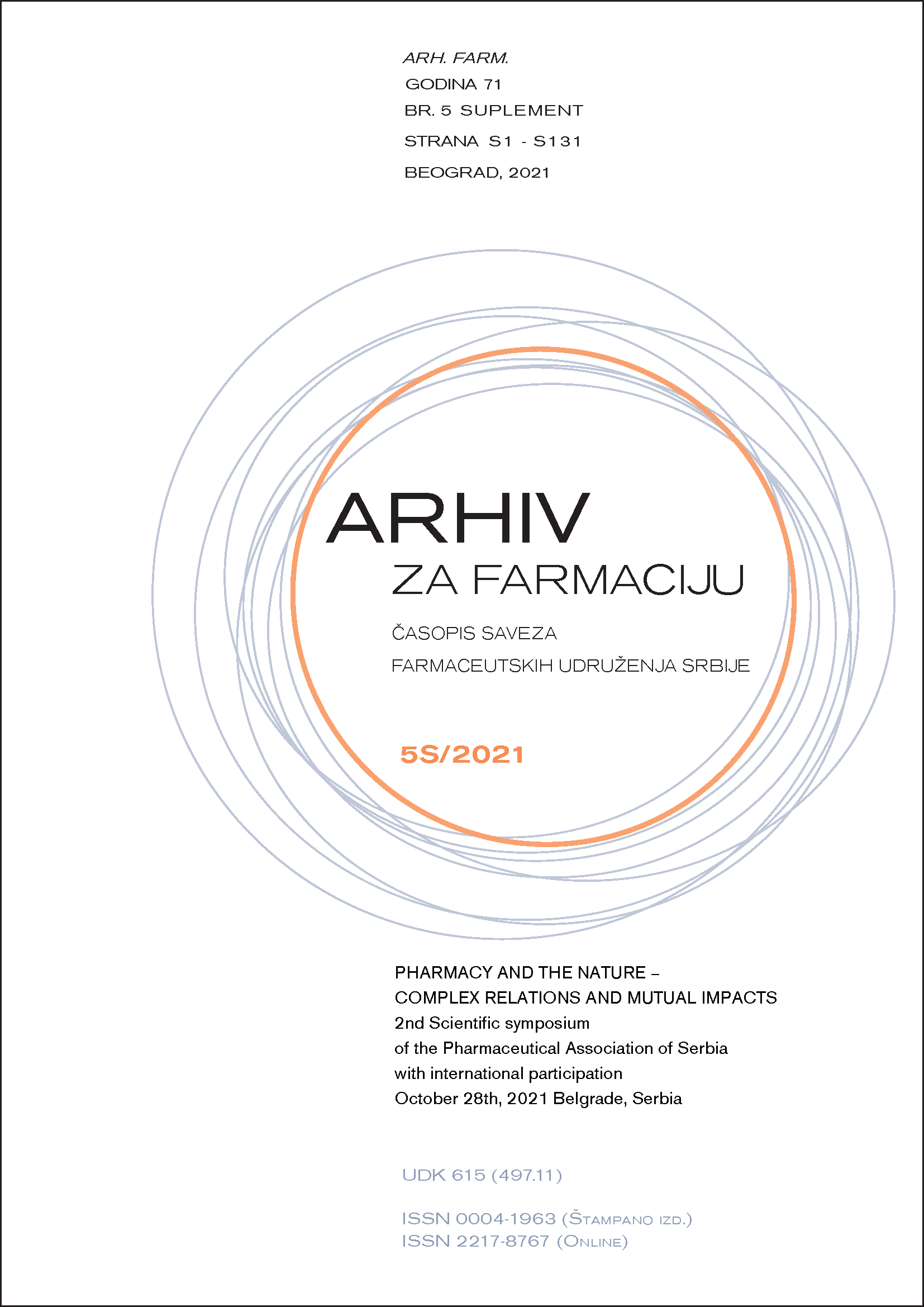GREEN PHARMACEUTICAL MANUFACTURING: APPROACHES AND PERSPECTIVES
Abstract
Pharmaceutical industry is highly competitive, but tightly regulated industry which makes the introduction of changes and innovations quite challenging. Therefore, while being among the first industries to recognize the importance of moving towards sustainable, green manufacturing, changes are still being implemented slowly, mostly by some leading pharmaceutical companies. The reduction in energy consumption, carbon footprint and waste discharge has been recognized as the core of the pharmaceutical industry sustainability efforts. Particular attention has been given to implementation of green chemistry principles into development and production of active pharmaceutical ingredients, considering the significant environmental impacts of these processes (1). However, thorough environmental considerations are needed, from the introduction of more energy efficient approach in manufacturing sites design and logistic operations, replacement of traditional technological processes with new, more environmentally friendly manufacturing concepts and operations in medicines production, to reduction of waste and/or its reuse for energy generation. Pharmaceutical companies have already started with transformation of its production sites into smart, green factories using renewable energy sources such as geothermal, wind, water and solar energy. Some of them have targeted its environmental goals to minimised or even zero carbon footprint in the near future, as well as significantly reduced water usage. To achieve such goals further changes are expected, including the replacement of commonly used technological processes (associated with high energy consumption and usage of organic solvents) with innovative technologies. Conventional granulation and tablet coating methods, involved in production of solid dosage forms, are example of methods that considerably contribute to overall greenhouse gas emissions from pharmaceutical manufacturing plants. The variety of solvent-free and environmentally friendly granulation and coating methods have been developed and intensively investigated (2, 3), but strict and high regulatory demands usually lead to a reluctance of pharmaceutical industry to implement the novel technologies. The introduction of automation and continuous manufacturing is also expected to reduce the environmental impact of pharmaceutical manufacturing due to the decreased waste generation, improved operational and energy efficiency.

